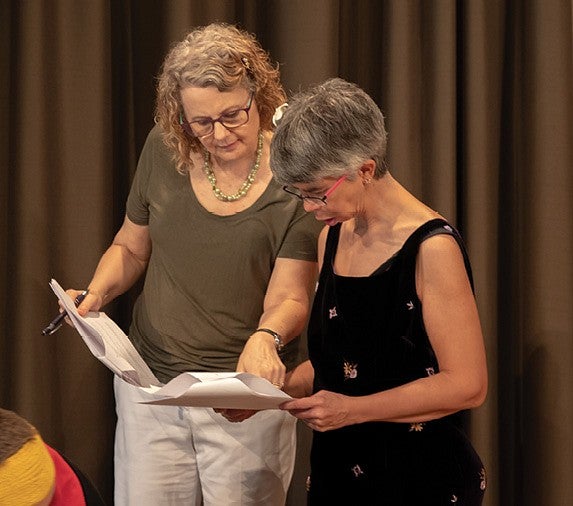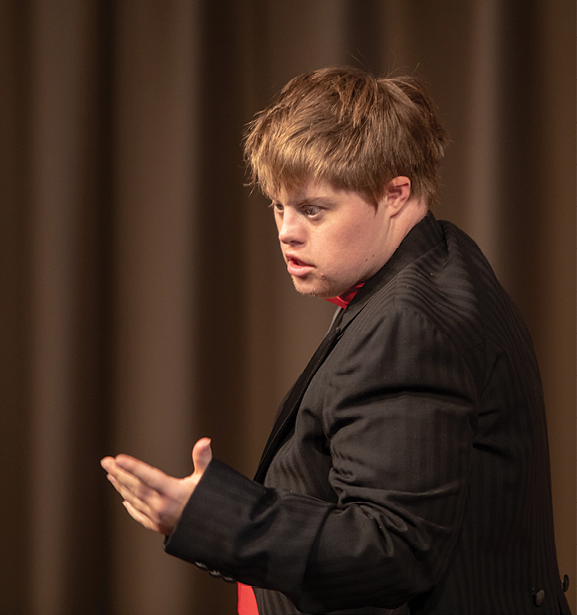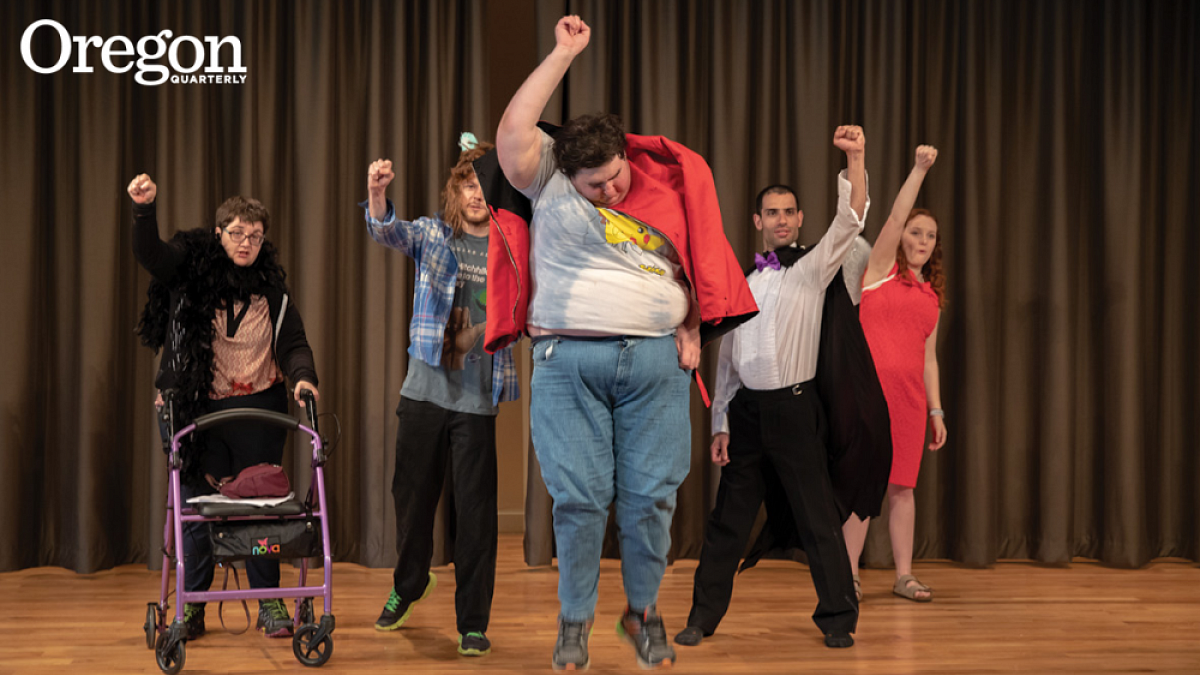I nspiration struck while Dayna Davis was lying in bed, sick. She had spent the day coughing and sneezing when the lyrics came to her. Having lived 47 years with cerebral palsy, Davis felt she’s been treated differently and wanted to convey that in a song.
nspiration struck while Dayna Davis was lying in bed, sick. She had spent the day coughing and sneezing when the lyrics came to her. Having lived 47 years with cerebral palsy, Davis felt she’s been treated differently and wanted to convey that in a song.
“I’m a human being,” she says. “It’s hard living in this world.”
Before the words could slip away, Davis grabbed her phone, opened the voice recorder app and sang the words to a song she would later title, “See Us As We Are.”
Davis is part of the University of Oregon’s Living Theater class, a new English course that brings together students and community members with disabilities to create performance pieces staged for the public.
Earlier this year, Davis and students hunkered down inside an empty classroom and got to work. Junior English major Jocelyn Brew wrote down Davis’ lyrics, adding another verse from group input. Haley Bertelsen, a junior in business marketing, pulled out her guitar and tried some chords. Bringing their voices together in harmony, the group sang Davis’ words to Bertelsen’s music. By the end, they were all beaming.

Moments like these, where people from different demographics work together as equals, are exactly what Betsy Wheeler, an associate professor of English, had in mind when she created the Living Theater class.
The course is part of the disability studies minor that launched in fall 2017. Through creative collaboration, students gain confidence interacting with people with disabilities, Wheeler says; they become allies in raising awareness and understanding and helping diminish the isolation that people with disabilities often feel.
“Performance is a really great way to link two different groups of people,” Wheeler says. “It’s a real leveler.”
After receiving a $10,000 grant through the Tom and Carol Williams Fund for Undergraduate Education, Wheeler offered the first Living Theater course in 2016. This year’s class was partially funded by the Department of English, and she depends on additional grants and donations to sustain the course.
The term began with the group sharing personal stories and deep discussions that were then adapted for the stage. For example, Hajar Albattah, a visually impaired psychology student, offered up a thought: What if everyone in the world was blind? The conversation became a scene about living in a world where a blind person can become a doctor.
As an English course, the class takes an uncommon approach in the examination of literacy.

Brew describes Living Theater as a unique take on a creative writing course, with inspiration built into every interaction.
“Sitting with these people’s stories, I was just incredibly inspired by their strength and perseverance,” she says. “As someone who doesn’t have a disability and who doesn’t experience the world that way, to see these amazing people using their disability in a way that was helpful to the world, despite the fact that the world so often doesn’t return that favor . . . I was just really proud and happy in those moments to be surrounded by these wonderful people.”
While the first Living Theater course focused on monologues told by community members, this spring’s class evolved to include their songs and skits, culminating with performances last month.
Tony Baez, a 33-year-old with autism, brought a story to class and worked with English major Manny Rios to develop a script, adding dialogue and peppering in jokes. “[Rios] collaborated but he didn’t change too much,” Baez says. “His smile encouraged me. I’ve never really had much faith in my work so this kind of changes it.”
When he signed up for the class, Rios was nervous about working with people with disabilities. Not knowing what to say, he was a fly on the wall for the first week. However, he soon realized that his worries were unfounded, and he had the rewarding experience of helping bring Baez’s vision to fruition.
“I didn’t know what to expect, I didn’t think I’d have this much fun,” Rios says. “Now I feel like I’ve really become friends with some of these people, and I think that’s the best part.”
—By Emily Gillespie
Emily Gillespie, a freelance writer in Portland, has written for the Guardian, Portland Monthly, the Columbian, and other publications in the Northwest.


